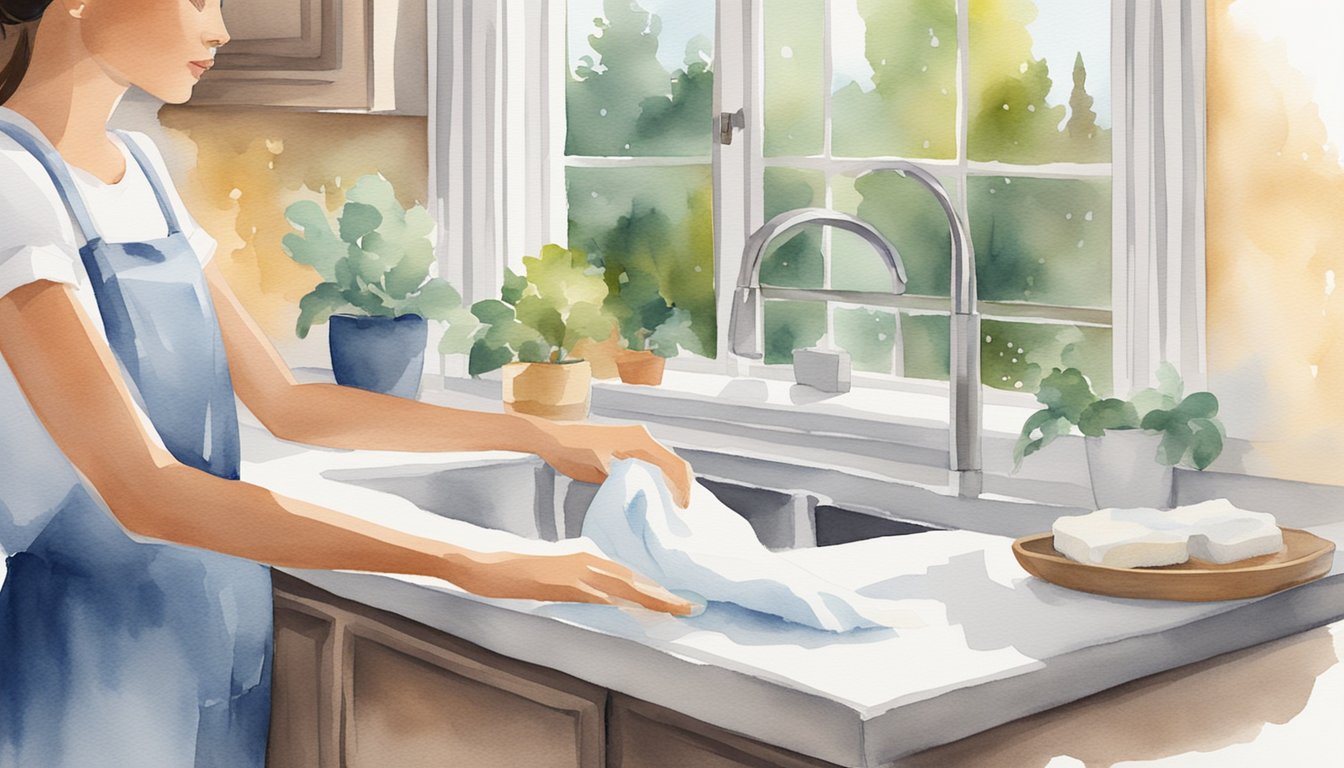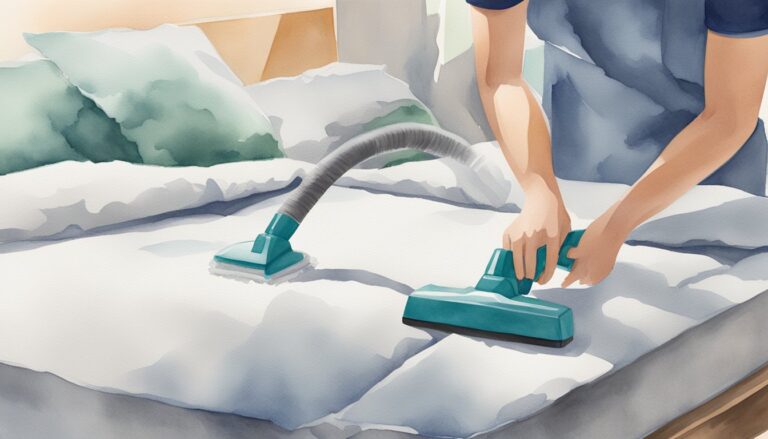Call us: (631) 270 9692
Quartz countertops are a popular choice for many homeowners because they are durable, easy to maintain, and add an aesthetic touch to your kitchen. Keeping them clean is simple and doesn’t require harsh chemicals or complicated steps. The best way to clean your quartz countertops is to use mild dish soap, warm water, and a microfiber cloth.
For daily cleaning, a soft cloth and gentle soap will usually be enough to keep your countertops looking their best. If you encounter stains or stubborn spots, a glass cleaner or a non-abrasive sponge can help without damaging the surface. Regular cleaning not only preserves the beauty of your quartz countertops but also ensures they remain a hygienic part of your kitchen.
To avoid scratches and damage, steer clear of abrasive pads and acidic cleaners. These can harm the quartz and dull its shine. Simple, routine care will keep your quartz countertops looking as good as new for years to come. For more detailed guidance, visit Bob Vila’s guide on cleaning quartz countertops.
Daily Cleaning and Maintenance
Maintaining quartz countertops involves regular cleaning, using the right products, and preventing damage from heat and sharp objects. Here are some tips to keep your countertops looking their best.
Routine Surface Wiping
For daily cleaning, start by wiping down your quartz countertops with a damp microfiber cloth. This helps remove dust, crumbs, and other small debris. If you encounter any sticky spots or hardened food, use a soft sponge with warm, soapy water to gently scrub the area.
Be sure to dry the countertop with a clean microfiber cloth to prevent streaks. It’s crucial to clean up any spills as soon as they happen to avoid staining. Because quartz is non-porous, it’s resistant to most spills, but quick action is always best for keeping surfaces pristine.
Proper Use of Cleaning Agents
When selecting cleaning agents, opt for nonabrasive surface cleaners. Spray a generous amount of cleaner on the countertop and let it sit for a few minutes before wiping it away with a non-scratch sponge. Avoid using harsh chemicals like bleach or oven cleaners as these can dull the surface.
A simple solution of dish soap and water is often enough for routine cleaning. For tougher stains, a small amount of rubbing alcohol on a microfiber cloth can be effective. Always rinse thoroughly with water after using any cleaner to ensure no residue is left behind on the quartz.
Avoiding Damage from Heat and Sharp Objects
Quartz countertops are heat resistant but not heat-proof. Always use trivets or hot pads under hot pots and pans to prevent thermal shock which can crack the quartz. Direct contact with high heat can also discolor the surface over time.
To maintain the smooth surface, never cut directly on the quartz. Use a cutting board to prevent scratches from sharp objects. Additionally, avoid dragging any metal items across the surface to keep your countertops looking flawless.
By following these straightforward steps, you can keep your quartz countertops clean and in excellent condition for years to come. For more detailed tips, you can find additional guidance here.
Dealing with Spills and Stains
When dealing with spills and stains on your quartz countertop, prompt action and the right cleaning method ensure the best results. Different types of stains require unique approaches to avoid damage and maintain the surface’s appearance.
Immediate Action for Spills
Address spills as soon as they occur. Use a soft cloth or paper towel to blot the liquid. Do not rub, as this can spread the spill and potentially cause more damage. Cleaning food spills right away prevents them from setting and becoming hard to remove.
For liquid spills, water and a mild soap solution usually suffice. Spray the cleaning solution and gently wipe the surface. Quick action is crucial, especially for coffee or wine. Allowing these to sit can make removing stains challenging.
Removing Tough Stains
To tackle tough stains on your quartz countertop, use a nonabrasive cleaning solution. Vinegar mixed with water can be effective for many types of stains. Spray the mixture on the stained area and let it sit for a few minutes. Then wipe it clean with a non-scratch sponge.
For deeper stains like ink or permanent marker, try using rubbing alcohol. Apply it directly on the stain and gently rub with a cloth. If the stain persists, a specialized quartz stain remover can be helpful.
Handling Specific Types of Stains
Different stains need different treatments. Food stains like turmeric or curry can be stubborn. For these, use a paste made of baking soda and water. Leave it on the stain for a few minutes before wiping it away.
For ink or nail polish, apply a small amount of nail polish remover on a cloth and dab the stained area. Do not pour it directly on the countertop to avoid damage. Always rinse thoroughly afterward to remove any residue.
Oil and grease require attention too. A mixture of warm water and a degreasing dish soap can help lift the grease. Wipe the area with a cloth and ensure no traces are left behind.
Make sure to test any cleaning solution on a small, inconspicuous area first to ensure it does not damage your quartz countertop.
Long-Term Care and Maintenance

Caring for quartz countertops involves avoiding extreme temperatures, regularly disinfecting the surface, and knowing when to call in professional cleaners. This ensures the countertops stay in pristine condition for years.
Protecting from Extreme Temperatures
Quartz countertops can be damaged by high heat. Always use trivets or heat pads when placing hot pots, pans, or dishes on the surface. Sudden temperature changes can cause the material to crack or discolor.
Quartz is non-porous but it’s not invincible. Avoid placing slow cookers and similar appliances directly on the countertop for extended periods. Repeated exposure to high heat can weaken the resin that binds the quartz together.
Using cutting boards for hot items is also a good practice. This precaution not only protects your countertops but also keeps their appearance sleek and undamaged.
Regular Disinfecting Practices
Regular disinfection is necessary to keep your quartz countertops hygienic. Use a mild soap mixed with warm water for everyday cleaning. Spray the solution and wipe it down with a clean microfiber cloth.
For a deeper clean, you can use a non-abrasive surface cleaner once a week. Allow the cleaner to sit for a few minutes before wiping it off with a non-scratch sponge. This helps in maintaining the shine and prevents buildup of germs.
Avoid using bleach or other harsh chemicals. These can damage the surface, making it dull and susceptible to scratches. Stick to gentle, non-toxic cleaners from trusted brands to keep your countertops looking new.
When to Use Professional Cleaning Services
There are times when professional cleaning services are necessary. For stubborn stains that you can’t remove at home, professional cleaners have the right tools and products to tackle them without damaging your quartz.
If your quartz countertops have suffered damage such as chips or deep scratches, professionals can perform repairs that restore the surface to its original condition. While these services aren’t needed often, they can prolong the life of your countertops.
Periodic professional maintenance, even when there’s no apparent damage, can also help keep your quartz countertops in top condition. This proactive approach ensures any potential issues are addressed before becoming more serious problems.





